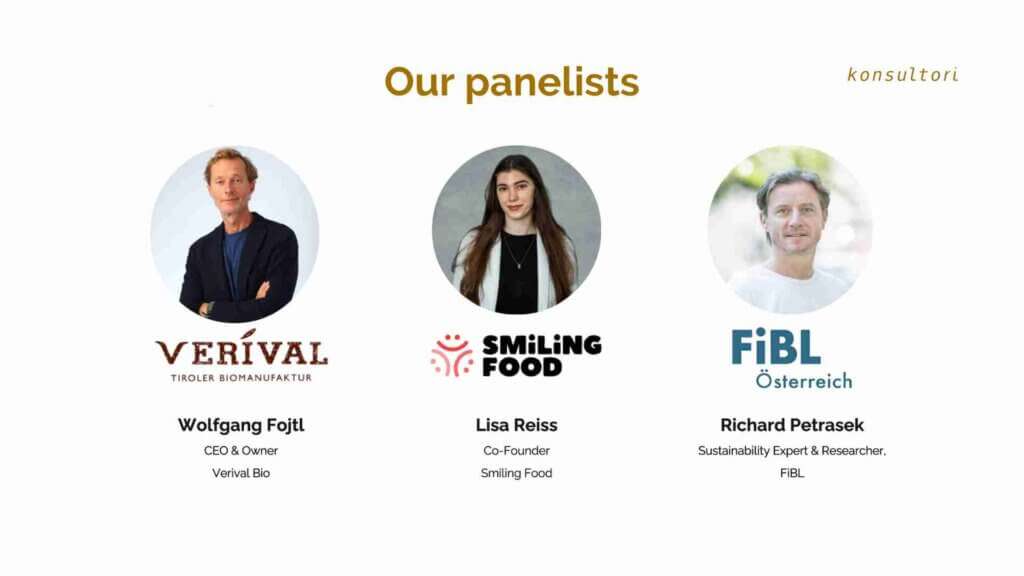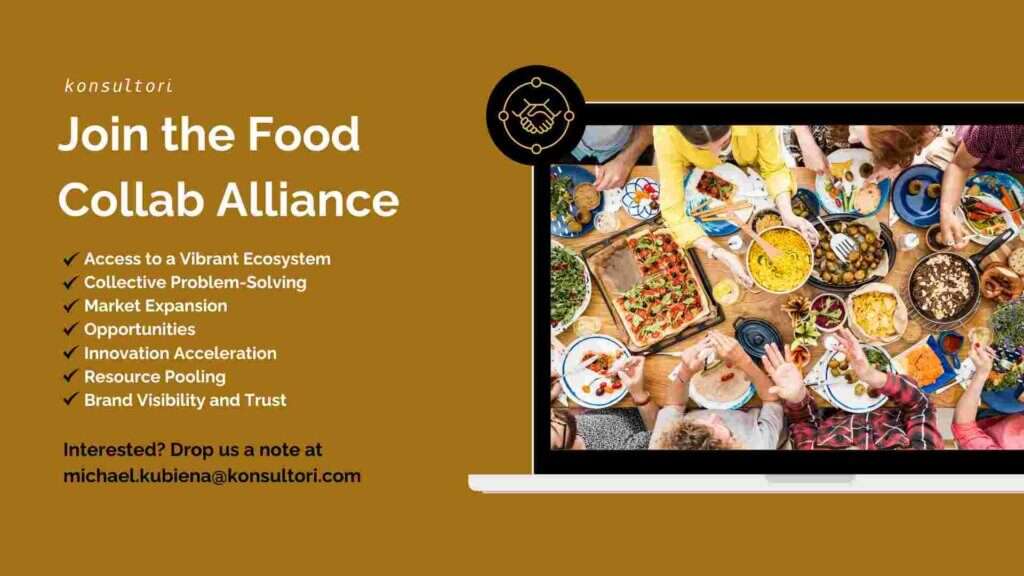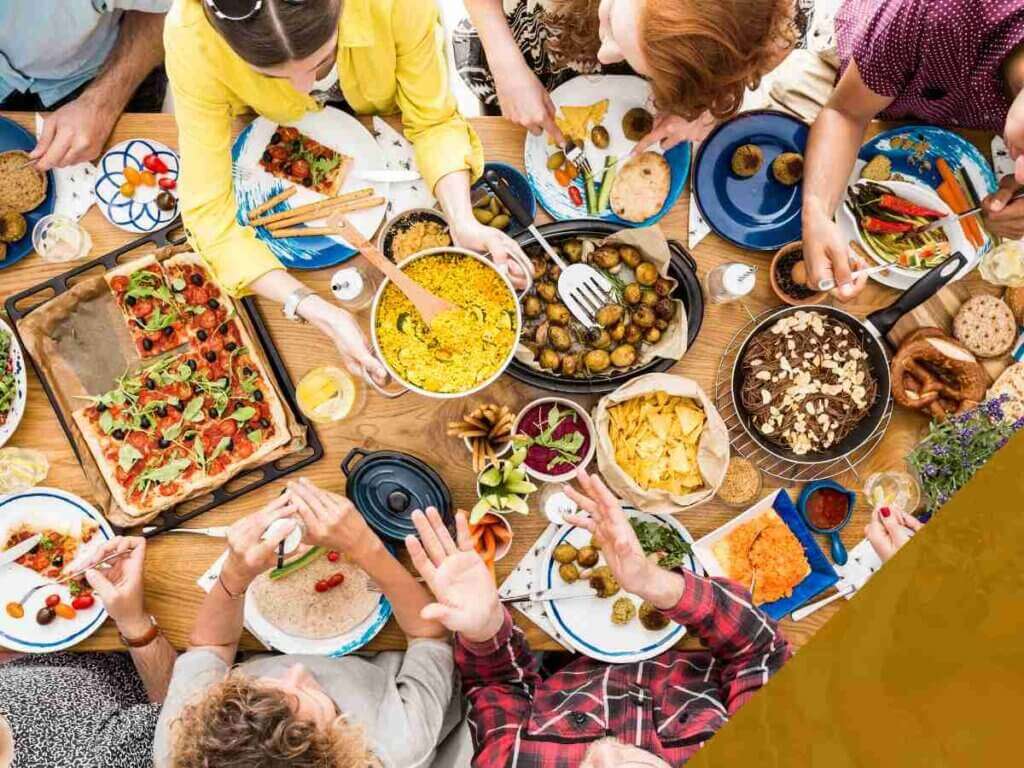Our contemporary food system faces many challenges (climate crises, biodiversity loss, hidden costs for the environment and healthcare etc.). Furthermore, it has played a significant part in creating those very problems. The good news though is that our food system has the capacity to transform and become part of the solution to these issues, too!
Every single actor in the food system (producers, consumers, retailers, policymakers, researchers, activists…) can contribute; but individual, isolated efforts will not be enough to innovate, change and substantially transform the food system: Such complex challenges require joint and concerted action in the form of collaborations – at various levels and by a range of diverse actors.
Food Collaboration Resources
Discover the latest insights and strategies to revolutionize the food industry!
At Konsultori, we believe in the power of collaboration and have a vivid professional and personal interest in our food systems. This is why we decided to convene a panel of food system actors to discuss the role of collaborations in food system transformation.
2024’s ViennaUP offered to include our panel in its diverse program and Sabine Pümpel of AWS (Austrian Wirtschaftsservice) helped us to put together our group of panelists:
- Lisa Reiss, a startup founder (Smiling Food) working on sugar alternatives,
- Wolfgang Fojtl, an entrepreneur and the owner of an SME producing organic breakfast items (Verival Bio).
- Richard Petrasek who works on applied research on sustainability in food systems at FiBL
Together, these experts engaged in a lively and insightful discussion, covering a wide range of topics and sharing valuable perspectives.

The benefits and challenges of collaboration
For starters, our panelists elaborated their views on the reasons for, purpose and potential benefits of collaborating with other actors in the food space:
- Sharing expertise, pooling resources thus introducing a meaningful division of labor can bring projects alive and increase the scope of ideas.
- There is a lot of space for collective creativity and learning from collaboration partners. Partners can benefit from access to others’ networks (of suppliers, partners, clients,…).
- Collaborations can begin with work on an individual project or challenge so as to test the foundations of partnerships. One does not need to go all-in from the very start. Collaborations can thus become a means of iterative problem solving.
- Gaining stability, mitigating risks and shared accountability can be other purposes of collaboration.
- Whichever the focus of collaboration is there needs to be an incentive for all involved parties. While such incentives might be purely financial, as in the case of most investors, motivations and rewards can be manifold.
But collaboration does not come easy. It is full of challenges and pitfalls which our panelists addressed openly and reflected together upon:
- Often, and especially in collaborations between parties of drastically different sizes (SME and corporate, startup and corporate) agendas might be diverging radically. Having shared objectives, finding a shared language, shared values and a common understanding of fundamental aspects is really important.
- But the strategic level is not the only and oftentimes not the key issue: operational topics such as distribution, logistics, IT, finance, quality assurance may become the breaking points.
- Furthermore, legal aspects with regard to non-disclosure agreements (NDA), intellectual property (IP) rights and due diligence processes can become a real hassle, especially for the ‘smaller’ party.
- For startups, the lack of affordable access to research and testing facilities may become an obstacle.
- We then turned our attention to the wider food ecosystem and the changes needed to foster successful and sustainable collaborations.
- There are certain regulations in our current food environment which are detrimental to collaborative food innovation: e.g. absence of taxes on sugar, while alternative plant-based products are sometimes taxed higher than animal-based ones (e.g. dairy vs. non-dairy milk).
- Innovators, in general, and startups, in particular, require improved, i.e. less bureaucratic access to funding.
- Innovative collaboration requires guidance and facilitation. A qualified competent ecosystem player could fulfil this role.
In addition, our panelists made a few more general, highly-relevant and very thoughtful observations:
- The big picture, i.e. the purpose of collaboration in the food system, can easily get lost when everyday operations is consuming everybody’s attention.
- A meaningful, successful collaboration does not need to last forever but it does require a longer-term outlook, beyond just one product, in order to yield a sustainable impact.
- Collaboration can and needs to thrive in various dimensions and diverse configurations, sometimes even between rather unlikely partners.
- Collaborations of partners of similar sizes, with – as mentioned above – shared belief systems are more likely to be successful than those which are characterized by an in-built disbalance of power and interests.

The key takeaway
What does it take to successfully collaborate in the food space? According to our panelists it is, first and foremost, the following ingredients:
- More courage
- Less greed and
- A common understanding of the challenges in the food system, a shared language and value system
- Clear incentives and tangible benefits for the parties involved in collaborating
Closing Remarks: Collaboration in the Food Industry
In the largest industry in the world, i.e. the food industry, in our contemporary food system where every single one of us has a stake, challenges are complex and objectives thus need to be ambitious. That is why: collaboration is key, even though it is not easy. Well-meant is not well done. Good intentions alone are not enough. Our panelists made that very clear throughout our discussion. We would like to thank them once again for their time and effort and for sharing their experience and insights with the audience and us. We thank our panel discussion’s audience for their attendance and their questions.
Thanks to Vienna Business Agency, ViennaUP and Dudu Gencel for including our session into the program. Thank you to Sabine Pümpel of AWS for helping us to find our panelists!
Konsultori takes cooperation very seriously!
In order to foster a collaborative approach in the food system we, as Konsultori, want to play our part and facilitate and support collaborations with our experience and expertise. If you are a food entrepreneur involved in an SME, scaleup or startup we invite you to join our Food Collaboration Alliance.

Food Collaboration Alliance
Want to join the Konsultori cooperation platform?
